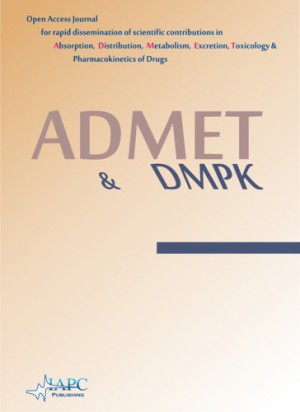
ADMET & DMPK
Yazarlar: Valeria Gigante, Giovanni M. Pauletti, Sabine Kopp, Minghze Xu, Isabel Gonzalez-Alvarez, Virginia Merino, Michelle P. McIntosh, Anita Wessels, Beom-Jin Lee, Kênnia Rocha Rezende, Gerhard K.E. Scriba, Gaurav P. S. Jadaun, Marival Bermejo
Konular:-
DOI:10.5599/admet.850
Anahtar Kelimeler:Biowaiver,Multisource products,Essential medicines,Permeability,Regulatory guidance
Özet: The WHO Biopharmaceutical Classification System (BCS) is a practical tool to identify active pharmaceutical ingredients (APIs) that scientifically qualify for a waiver of in vivo bioequivalence studies. The focus of this study was to engage a global network of laboratories to experimentally quantify the pH-dependent solubility of the highest therapeutic dose of 16 APIs using a harmonized protocol. Intra-laboratory variability was ≤5 %, and no apparent association of inter-laboratory variability with API solubility was discovered. Final classification “low solubility” vs “high solubility” was consistent among laboratories. In comparison to the literature-based provisional 2006 WHO BCS classification, three compounds were re-classified from “high” to “low-solubility”. To estimate the consequences of these experimental solubility results on BCS classification, dose-adjusted in silico predictions of the fraction absorbed in humans were performed using GastroPlus®. Further expansion of these experimental efforts to qualified APIs from the WHO Essential Medicines List is anticipated to empower regulatory authorities across the globe to issue scientifically-supported guidance regarding the necessity of performing in vivo bioequivalence studies. Ultimately, this will improve access to affordable generic products, which is a critical prerequisite to reach Universal Health Coverage.